第78章 CHAPTER VI.(1)
OLD CLOTHES.
As mentioned above, Teufelsdrockh, though a Sansculottist, is in practice probably the politest man extant: his whole heart and life are penetrated and informed with the spirit of politeness; a noble natural Courtesy shines through him, beautifying his vagaries; like sunlight, making a rosyfingered, rainbow-dyed Aurora out of mere aqueous clouds; nay brightening London-smoke itself into gold vapor, as from the crucible of an alchemist. Hear in what earnest though fantastic wise he expresses himself on this head:--"Shall Courtesy be done only to the rich, and only by the rich? In Good-breeding, which differs, if at all, from High-breeding, only as it gracefully remembers the rights of others, rather than gracefully insists on its own rights, I discern no special connection with wealth or birth:
but rather that it lies in human nature itself, and is due from all men towards all men. Of a truth, were your Schoolmaster at his post, and worth anything when there, this, with so much else, would be reformed. Nay, each man were then also his neighbor's schoolmaster; till at length a rude-visaged, unmannered Peasant could no more be met with, than a Peasant unacquainted with botanical Physiology, or who felt not that the clod he broke was created in Heaven.
"For whether thou bear a sceptre or a sledge-hammer, art not thou ALIVE; is not this thy brother ALIVE? 'There is but one temple in the world,' says Novalis, 'and that temple is the Body of Man. Nothing is holier than this high Form. Bending before men is a reverence done to this Revelation in the Flesh. We touch Heaven, when we lay our hands on a human Body.'
"On which ground, I would fain carry it farther than most do; and whereas the English Johnson only bowed to every Clergyman, or man with a shovel-hat, I would bow to every Man with any sort of hat, or with no hat whatever. Is not he a Temple, then; the visible Manifestation and Impersonation of the Divinity? And yet, alas, such indiscriminate bowing serves not. For there is a Devil dwells in man, as well as a Divinity; and too often the bow is but pocketed by the _former_. It would go to the pocket of Vanity (which is your clearest phasis of the Devil, in these times); therefore must we withhold it.
"The gladder am I, on the other hand, to do reverence to those Shells and outer Husks of the Body, wherein no devilish passion any longer lodges, but only the pure emblem and effigies of Man: I mean, to Empty, or even to Cast Clothes. Nay, is it not to Clothes that most men do reverence: to the fine frogged broadcloth, nowise to the 'straddling animal with bandy legs' which it holds, and makes a Dignitary of? Who ever saw any Lord my-lorded in tattered blanket fastened with wooden skewer? Nevertheless, Isay, there is in such worship a shade of hypocrisy, a practical deception:
for how often does the Body appropriate what was meant for the Cloth only!
Whoso would avoid falsehood, which is the essence of all Sin, will perhaps see good to take a different course. That reverence which cannot act without obstruction and perversion when the Clothes are full, may have free course when they are empty. Even as, for Hindoo Worshippers, the Pagoda is not less sacred than the God; so do I too worship the hollow cloth Garment with equal fervor, as when it contained the Man: nay, with more, for I now fear no deception, of myself or of others.
"Did not King _Toomtabard_, or, in other words, John Baliol, reign long over Scotland; the man John Baliol being quite gone, and only the 'Toom Tabard' (Empty Gown) remaining? What still dignity dwells in a suit of Cast Clothes! How meekly it bears its honors! No haughty looks, no scornful gesture: silent and serene, it fronts the world; neither demanding worship, nor afraid to miss it. The Hat still carries the physiognomy of its Head: but the vanity and the stupidity, and goose-speech which was the sign of these two, are gone. The Coat-arm is stretched out, but not to strike; the Breeches, in modest simplicity, depend at ease, and now at last have a graceful flow; the Waistcoat hides no evil passion, no riotous desire; hunger or thirst now dwells not in it.